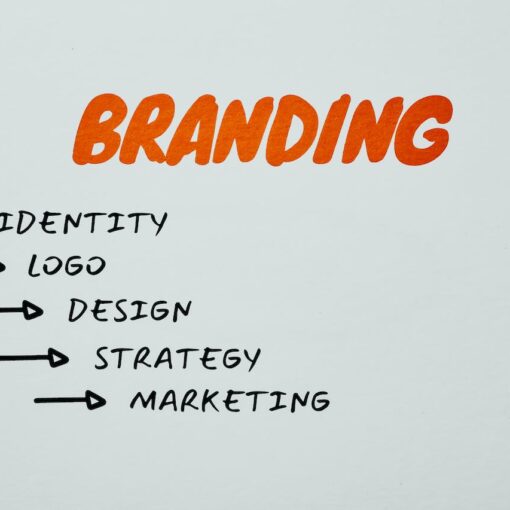Embarking on a career change at the40 can be a significant step, one that intertwines both personal and professional aspirations with an entrepreneurial vision. At this midlife milestone, individuals often find themselves evaluating their goals and seeking more fulfilling ventures that align with their evolved values and accumulated experience. The drive to transition from traditional employment to entrepreneurship taps into a desire for autonomy, creative freedom, and the potential for financial growth, all of which are compelling motivators for those willing to embrace the challenges and opportunities such a change entails.

For many, the shift to entrepreneurship at age 40 is not an impulsive leap but a strategic maneuver, underscored by careful planning and targeted learning. Acquiring new skills and expanding one’s professional network become foundational steps in this transition process. Such preparation not only boosts confidence but also equips aspiring entrepreneurs with the tools necessary to navigate the complexities of running a business. Furthermore, maintaining work-life balance remains a critical consideration, ensuring that the pursuit of professional success does not come at the expense of personal well-being.
Key Takeaways
- Pursuing entrepreneurship at 40 aligns personal growth with professional aspirations.
- Strategic planning and skill acquisition are crucial for a successful career transition.
- Sustaining work-life balance is essential during this professional transformation.
Identifying Your Reasons for a Career Change
When one approaches the age of 40, recognizing the motivations for shifting career paths is often crucial. It could be driven by a longing to pursue a passion, or perhaps it’s the response to job fatigue and the desire for something new that resonates with the heart.
Assessing Personal Goals and Passions
Individuals considering a career change at 40 often reflect on deep-seated ambitions that may have been sidelined by more practical career choices made earlier in life. They should ask themselves, “What drives my enthusiasm and commitment?” Identifying why the change is needed helps to lay a solid foundation for the new path they aim to tread, ensuring it aligns with their passion and personal values.
Recognizing the Signs of Burnout
The reality of burnout is a prevalent factor pushing many towards a career transition. Classic indicators include a feeling of chronic stress, emotional exhaustion, and a noticeable decrease in job performance. Recognizing these symptoms is essential for initiating the move towards a fulfilling entrepreneurial venture where one can exert more control over one’s professional life.
Understanding the Implications of Midlife Transition
A midlife career change can signal a pivotal moment for reassessment and renewal. This period often brings about a more profound understanding of what one truly values in work and life. Facing a midlife transition is not simply about changing jobs; it’s about aligning one’s career with the core of one’s heart and personal aspirations, thereby potentially leading to a more satisfying and enriching second act.
Planning Your Career Transition
Embarking on a career change at 40 from an employee to an entrepreneur requires meticulous planning and a clear assessment of one’s financial responsibilities, a robust business plan, and the ability to identify and leverage transferable skills. Navigating career transitions can lead to success when these key elements are thoughtfully addressed.
Evaluating Financial Responsibilities
One should carefully assess their current financial obligations and savings before venturing into entrepreneurship. This involves creating a detailed list of monthly expenses and a projection of how they may change during the transition. A financial safety net, which may include six months to a year of living expenses, can provide stability and reduce stress during the initial phase of establishing a business.
Creating a Business Plan
Developing a comprehensive business plan is critical for a successful transition and to attract potential investors or lenders. This plan should outline the business concept, market analysis, competitive landscape, marketing strategies, operational plan, and detailed financial projections. It acts as a roadmap, guiding the entrepreneur through each stage of business development.
Leveraging Transferable Skills
Identifying and utilizing transferable skills is a strategic advantage in adapting to entrepreneurship. Skills such as leadership, project management, and communication are valuable across various industries and can contribute to the success of the new venture. It’s important to articulate these skills in the context of the business to highlight one’s capabilities to investors, partners, and customers.
Acquiring New Skills and Education
Transitioning from employment to entrepreneurship at 40 requires a strategic approach to learning. It is essential that one expands their technical knowledge, seeks guidance through a mentor or career coach, and explores education options tailored to a midlife career change.
Expanding Technical Knowledge
In the digital age, technical aptitude can be a significant differentiator. For example, an understanding of artificial intelligence and related technologies could open new avenues for innovation in one’s business. One should consider resources like online courses or tech workshops that focus on upskilling in specific technical areas relevant to their intended industry.
Finding the Right Mentor or Career Coach
A seasoned mentor or career coach can be instrumental in navigating the complex transition to entrepreneurship. They provide personalized advice, industry insights, and can often help in expanding one’s professional network. When choosing a mentor, look for someone who has successfully made a similar transition and who demonstrates a clear understanding of the current entrepreneurial landscape.
Education Options for Midlife Career Change
Education is pivotal when one opts for a career pivot. Diverse options exist, from traditional degrees to flexible online certifications. Universities and online platforms offer programs geared towards entrepreneurial skills. For those who need to balance education with existing responsibilities, part-time or online programs designed specifically for professionals are available and allow for the application of new skills in real-time.
Building a Professional Network
When one transitions from employee to entrepreneur at 40, building a strong professional network is crucial. This network is the foundation for opportunities, partnerships, and invaluable market insights.
Utilizing LinkedIn
LinkedIn remains a powerful tool for professional networking. An individual should ensure their profile is updated to reflect their new entrepreneurial aspirations, showcasing experience and skills in a manner that attracts the right connections. Engaging with content and joining relevant groups can amplify their presence and help establish thought leadership within their industry.
Networking in Your New Industry
Transitioning industries necessitates establishing a new professional network. This means attending industry-specific events, conferences, and seminars to connect with peers and potential mentors. A proactive approach, such as setting concrete networking goals for each event, can yield fruitful relationships.
Seeking Volunteer and Part-Time Opportunities
Volunteering or taking on part-time roles can be an effective way to immerse oneself in the new industry landscape. These roles provide firsthand experience, learning opportunities and the chance to demonstrate commitment to the industry. Such involvement can lead to building strong ties and sometimes unexpected pathways to new business ventures.
Executing the Career Change
Transitioning to a new career, especially when moving from being an employee to an entrepreneur at 40, requires careful planning and execution. This section provides actionable guidance on revamping your resume, navigating new career responsibilities, and embracing a leadership position to facilitate a smooth career switch.
Revamping Your Resume
A career changer must tailor their resume to reflect the transferable skills they bring to their entrepreneurial endeavors. Highlighting leadership experience and problem-solving skills is key. They should focus on achievements that demonstrate an ability to innovate and manage projects or teams effectively.
Navigating New Career Responsibilities
When assuming a new career, one must be prepared for a shift in responsibilities. They’ll need to acquire new knowledge relevant to their business and industry. This may involve self-study, formal training, or mentorship. Time management becomes crucial as they juggle the multitude of tasks that come with entrepreneurship.
Embracing a Leadership Position
Taking on a leadership position in a new career involves setting a clear vision and being decisive. Effective communication and team-building are fundamental skills an entrepreneur must possess. They should display a willingness to listen, learn, and adapt to new challenges while leading their venture with confidence.
By focusing on these key areas, individuals can navigate the complexities of a career shift with clarity and determination, setting the foundation for a successful transition into entrepreneurship.
Maintaining Work-Life Balance
In the pursuit of becoming an entrepreneur at 40, individuals must focus on establishing a harmonious work-life balance. This balance is pivotal in ensuring sustained productivity and personal well-being.
Setting Realistic Expectations
Entrepreneurs are often propelled out of their comfort zone, facing a job outlook that is vastly different from that of an employee. It is crucial for one to set realistic goals regarding what can be achieved within a given timeframe. They must acknowledge the fluidity of work-life balance as a cycle, not a singular achievement, as highlighted by the Harvard Business Review. Recognizing that balance fluctuates can help in managing expectations and reducing burnout.
Developing Discipline and Support Systems
A disciplined approach to entrepreneurship is indispensable. They need to establish structured routines to maximize efficiency and effectiveness. This includes setting aside specific times for work and rest, thus fostering an environment conducive to both professional success and personal fulfillment.
Developing a support network is equally important. Entrepreneurs should actively seek out mentors, join communities, and enlist the help of friends and family. As suggested in articles by Forbes, support systems are key in managing workloads and ensuring one does not become overwhelmed by the entrepreneurial lifestyle. Such networks can also provide valuable feedback and encouragement, assisting the entrepreneur in maintaining focus and perspective.
Frequently Asked Questions
In this section, individuals looking to pivot their career path in their 40s will find answers to common inquiries about making the transition from employee to entrepreneur, identifying new career opportunities, and approaching the job market with confidence.
What are effective strategies for transitioning from an employee to a business owner at 40?
At age 40, effective strategies include leveraging one’s accumulated professional experience and network, seeking mentorship, and developing a comprehensive business plan. Research on career change at 40 indicates the importance of financial planning and acquiring new skills relevant to entrepreneurship.
How can someone over 40 identify lucrative career change opportunities that require minimal training?
Individuals over 40 can identify lucrative opportunities by assessing market demands, aligning with their existing skillsets, and considering industries with lower barriers to entry. Courses and certifications can also provide a swift transition to new fields, as advised by BetterUp.
What resources are recommended for individuals at 40 looking to shift their career into entrepreneurship?
Resources for aspiring entrepreneurs include business workshops, online courses, and networking events specifically tailored for career changers. Services such as CareerFoundry offer tailored guidance for entering the tech industry, another booming sector for start-ups.
What are some viable career options for a 40-year-old woman without a degree?
Viable options for women without a degree include starting a business, freelancing in a field of expertise, and exploring roles in sales or services that value experience and interpersonal skills. Skills-based positions and entrepreneurship are practical routes as highlighted by Forbes.
How can a person starting a career at 40 after being a stay-at-home parent approach the job market?
Individuals in this situation should highlight transferable skills like organization and management, consider part-time or freelance work to build a professional network, and seek out return-to-work programs that some companies offer.
What considerations should be taken into account when making a career change at 50?
When considering a career change at 50, it’s crucial to assess financial security, understand the potential need for additional training, and realistically evaluate the job market for seasoned professionals. Aligning the change with long-term vocational passions and health considerations is also essential. Guidance for such transitions can be read in more detail on Coursera




